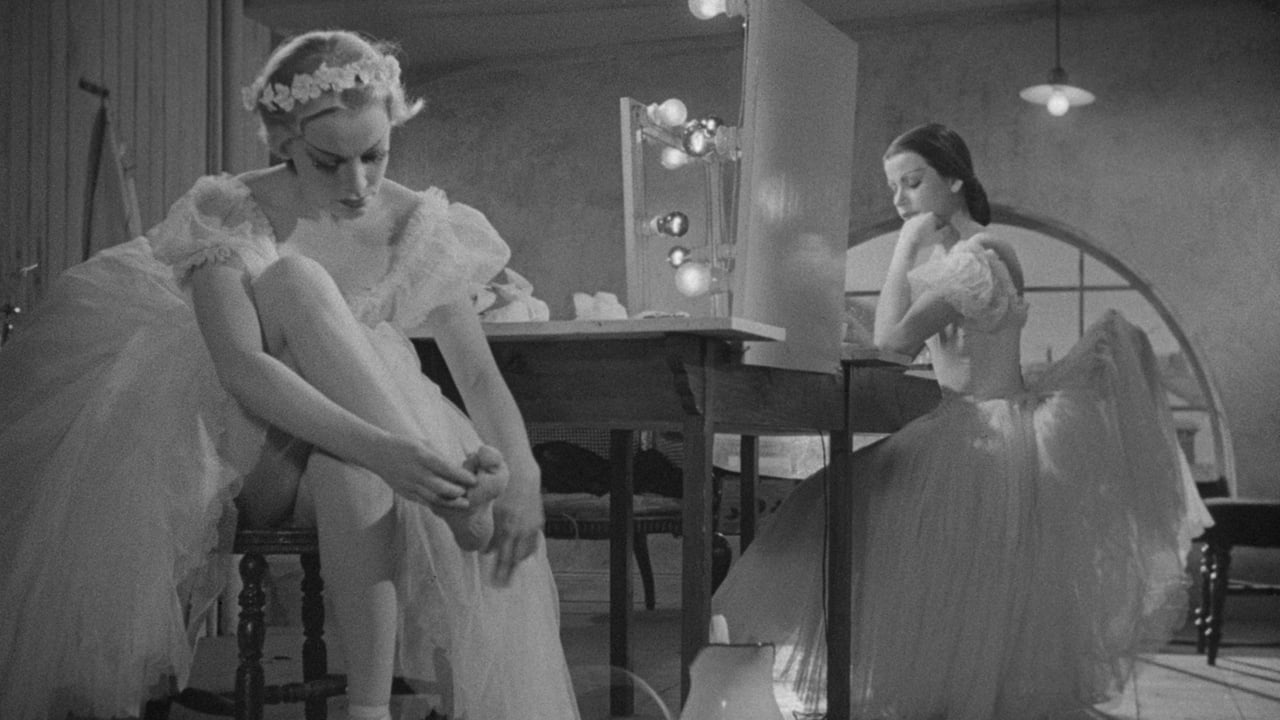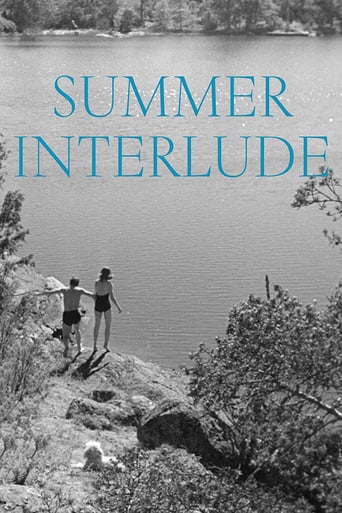

Really beautiful film until it's ending, which felt abrupt and tacked on to me. Bergman's endings are poor a fair amount of time it seems to me, but I would say this one is worse than usual. Otherwise, I liked it a lot. I tend to find Bergman's pre-superstardom films more exciting than the canonical ones. He's not as steeped in his own themes and the characters are allowed to seem more human and less like chesspieces of allegory. The sense of the Scandanavian landscape is great in this, one of his relatively few films shot on location. One senses the great relief of the warm but brief summer of the flash back scenes. And the scenes in the autumnal present seem- well, bleak-Scandanavian-cold bleak. I imagine these scenes have inspired more than one Black Metal album cover. The main actress, Maj-Britt Nilsson gives a great performance as an adolescent girl in the flashbacks and as a grown woman facing the end of youth in the narrative present. Both she and DP Gunnar Fischer were Bergman regulars before being replaced by more celebrated artists. They deserve their due in what has come to be known as the Bergman lexicon. I think I can say that none of my very favorite films are "by Bergman". For me, none of his works are as great as the very best films of Ozu, Antonioni, Wenders, or Bresson. But then again, the Swede made so many really, really good movies that it does put him in a category all his own.
... View MoreWhile waiting for the night rehearsal of the ballet Swan Lake, the lonely twenty-eight year-old ballerina Marie receives a diary through the mail. She travels by ferry to an island nearby Stockholm, where she recalls her first love Henrik.Bergman later reflected, "For me Summer Interlude is one of my most important films. Even though to an outsider it may seem terribly passé, for me it isn't. This was my first film in which I felt I was functioning independently, with a style of my own, making a film all my own, with a particular appearance of its own, which no one could ape." Indeed, this is a landmark film for Bergman. We see his early use of "summer" as a recurring theme, his stark use of black and white that would define him for a generation... and even the use of "Swan Lake", which may prefigure his love of "Magic Flute" in some way. Bergman brought a visual style to film I have never seen elsewhere and never will. He is the master, and it all begins with "Summer Interlude".
... View MoreActually there is nothing wrong with Summer Interlude as such, it's just that I don't think it is quite on the same level as Ingmar Bergman's very best. Bergman's direction is as always superb. The cinematography positively shimmers, and the images of the sunny Swedish countryside are beautiful to look at. The writing is thought-provoking, affecting in its honesty and sweet in how it deals with the romantic elements. The story still has the dramatic intensity and structural complexity that helps to form the best of Bergman's films. The two lead characters are touching and are likable, Marie being world-weary and Henrik being timid. The acting helps to reflect that, especially Maj-Britt Nilsson whose performance is so sensitive that you wonder why she wasn't in more after this and Secrets of Women. Birger Malmsten is not quite in the same league but gives a well-contrasted performance still. All in all, a lovely film if not quite among Bergman's very best movies. 9/10 Bethany Cox
... View MoreIt's interesting to note that when scripting this film Bergman would not have been much older than his protagonist: the 28 year old Ballet dancer Marie. Marie is someone who has spent the majority of her adult life building a wall around herself, her primary purpose in this is protection against the ghosts of her past. Although, we suspect, the wall may not have fully achieved this aim, it has succeeded in preventing her from truly making contact with the world, and, those who love her from ever reaching her. This is represented physically in the difficulty her young lover (the journalist) has in penetrating the theatre foyer at the beginning of the film. One gets the sense that Marie is doomed to drift through life, forever looking backwards, over her shoulder. When an ex-lover's diary is mysteriously delivered to the theatre she is forced deeper into herself, to confront a past she has locked away for the last fifteen years. We are then presented with these memories that the diary provokes and this is when the film truly comes alive. ALIVE is the key word here as Bergman paints for us, in a way that so few other's are able, a vivid picture of the essence of young life and falling in love for the first time, stomach butterflies and all. Her relationship to Henrik, a older local boy she meets whilst staying with her aunt is depicted expertly in such a way that Bergman's dialogue dances, and his scripting skills truly shine. In this field, he must have been way ahead of many of his contemporaries: their personalities are quickly and efficiently drawn so as to be absolute, their teasing banter is playful, unpredictable and a joy to witness. There is a magical scene in which the two young lovers begin to pencil various characters from their lives upon a record sleeve. Unexpectedly (especially in a Bergman film!) these drawings spring into life re-enacting a comic version of the lives of their real counterparts. In terms of Bergman's filmography these scenes are unique in their lightheartedness. However, this IS a Bergman film and, as surely as autumn and winter must follow summer, the light must be balanced by an equal amount of dark.As in Wild Strawberries, the narrative structure unfolds in a series of flashbacks that masterfully deliver vital information in such an order that ensures their emotional impact. The ballet scenes are of note as they are shot with a beautiful quietude that reflects the understated nature of the whole film. 'Summer Interlude' seems to assert the importance of embracing the here and now, of venturing into the shadows to confront one's ghosts, and laying them to bare in the sun. The alternative, it seems, is not really living. This is not typical Bergman fare, it is not nerve shredding drama on an epic scale, nor is it a challenging psychological abstraction that pushes the medium of cinema. Rather this is a moving little tale of remembered intimacy: small, but perfectly formed.
... View More